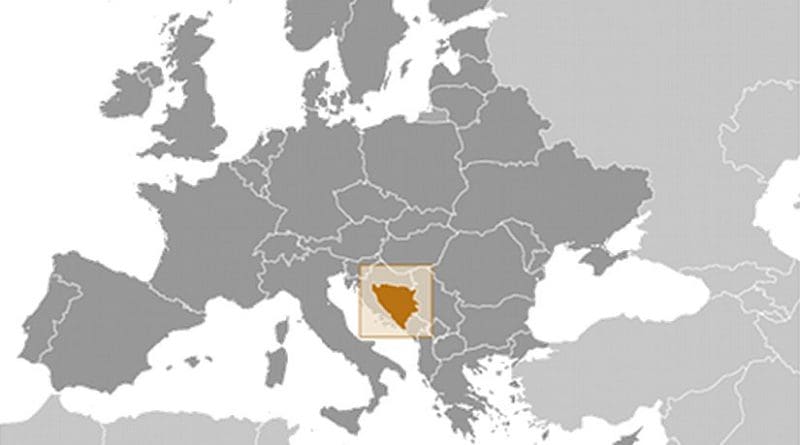Bosnian Serb Referendum Results Questioned
By Eleanor Rose
After the final results of the controversial referendum showed an overwhelming majority had voted to keep the date of the entity’s ‘statehood day’, some experts have queried the reliability of the results.
Sinisa Karan, president of the referendum commission in Republika Srpska, told a press conference on Monday that, after all votes have been counted, 99.81 per cent of voters had said “yes” to maintaining January 9 as the mainly Serbian entity’s national day.
Karan said that of the 1,219,399 people eligible to vote, 680,116 did so, giving a turnout of 55.67 per cent.
However, some experts say that the result is questionable, given that the disputed referendum in Republika Srpska took place in a legal and procedural vacuum, without proper oversight.
They also note that there is no real way to check the accuracy of the results of the referendum, which the country’s constitutional court had outlawed.
One journalist, Slobodan Vaskovic, told the media that he believed the turnout numbers were faked.
“The referendum was unsuccessful and the results were rigged. What was published by the referendum commission, that the turnout was between 59 and 60 per cent, is simply not true,” Vaskovic told the news website Klix.ba. Vaskovic said he believed the true turnout was between 47 and 49 per cent.
“The people did not vote in the referendum because they recognized the danger to security and the political repercussions in Bosnia and Herzegovina,” Vaskovic added.
He also maintained that RS President Milorad Dodik, “in last night’s [Sunday night’s] public address showed that he was dissatisfied”, referring to comments by Dodik that those who did not vote should feel ashamed.
The Democratization Policy Council, DPC, an NGO promotes accountability in Western democratization policy, has raised questions over the logistics and has said the vote took place in a “legal and procedural vacuum”.
It asked how the list of voters could include more than 1.2 million people when the 2013 census indicated that only 1,009,946 people over the age of 18 lived in Republika Srpska.
One explanation for the difference could be that Bosnian Serb voters in the diaspora were included in the larger figure.
But DPC co-founder Kurt Bassuener told BIRN on Monday that the results from voters abroad were questionable since the RS representative offices and social clubs that served as polling stations had no official or diplomatic status.
“I would be dubious about the out-of-the-country vote,” he said, noting that the referendum turnout needed to be above 50 percent for its results to be valid, even if it were a legally conducted referendum. “There’s no way to know except to take their word for it, which is questionable,” he concluded.
The coalition of NGOs called Pod Lupom [“Under the Spotlight”], which will oversee the upcoming local elections in Bosnia, told BIRN it did not oversee the referendum and therefore could not comment on the result.
Mario Brkic, spokesman for the Office of the High Representative, OHR, the country’s international overseer, told BIRN that whether the results of the referendum were accurate or not was irrelevant, since the referendum had no legal basis.
“It was illegally conducted and represents a challenge to the BiH Constitutional Court, the constitutional framework of the country, and the rule of law in BiH. The RS referendum commission acted illegally and therefore all their actions were carried out outside the law. The OHR did not monitor the referendum nor participate in any other way,” Brkic said in a written statement.
The Central Election Commission also confirmed to BIRN that it did not oversee any aspect of the vote. The OSCE in Bosnia was contacted for comment but none was returned by time of publication.

